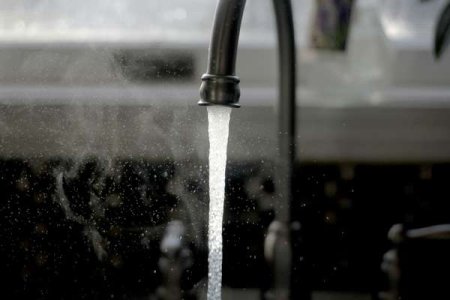What’s in the water? France’s ban could be a wake-up call
- Replies 0
If you’ve ever travelled through Europe, you’ll know that the French are fiercely proud of their food, wine, and—yes—even their tap water.
So, when a French town near the Swiss border recently banned its residents from drinking tap water due to contamination by so-called ‘forever chemicals’, it sent shockwaves through the community and made headlines around the world.
But should Aussies be worried about facing a similar fate? Let’s dive into the details and see what’s really going on.
What happened in France?
The town of Saint-Louis, nestled near the Swiss border, found itself in the spotlight after tests revealed its tap water contained more than four times the recommended limit of per- and poly-fluoroalkyl substances (PFAS).
These chemicals, often dubbed ‘forever chemicals’ because they don’t break down easily in the environment, have been linked to a range of health concerns.
The contamination in Saint-Louis was traced back to firefighting foam used at the nearby Basel Mulhouse Freiburg Airport—a reminder that even the most picturesque towns aren’t immune to modern pollution.
As a result, authorities ordered around 60,000 residents—including infants, pregnant women, breastfeeding mothers, and those with weakened immune systems—to stop drinking the tap water.

What are PFAS, and why are they a problem?
PFAS are a group of more than 4,000 man-made chemicals used in everything from firefighting foam and non-stick cookware to waterproof clothing and food packaging.
Their durability makes them useful in industry, but it also means they stick around in the environment—and in our bodies—for a very long time.
Research has linked PFAS exposure to a range of health issues, including raised cholesterol, immune system effects, and even some cancers (like kidney, testicular, and prostate).
However, the science isn’t settled. Australia’s National Health and Medical Research Council (NHMRC) points out that most studies are based on high-exposure groups, and the evidence is still being debated.
Is Australia at risk of a tap water ban?
The good news is that experts say a tap water ban like the one in France is highly unlikely here in Australia.
Professor Oliver Jones, a chemistry expert from RMIT, reassures us that while the headlines sound scary, the actual limits for PFAS in drinking water are set very low to protect public health. In most parts of Australia, PFAS levels in tap water are either undetectable or well below the latest safety guidelines.
That said, there are some known hotspots—mainly around airports and firefighting training grounds—where PFAS-containing foams have been used extensively in the past. These areas are closely monitored and managed by authorities to prevent contamination from spreading.
What is Australia doing about PFAS?
Australia isn’t sitting on its hands. After PFAS was detected in some Sydney water catchments last year, authorities updated the safety guidelines for drinking water, lowering the acceptable limits to reflect the latest scientific advice.
The government is also working to clean up contaminated sites and phase out the use of PFAS wherever possible.
The European Union is taking similar steps, aiming to significantly reduce pollution from PFAS by 2027. It’s a global issue, and Australia is very much part of the conversation.
Should you be worried about your tap water?
For most Australians, the answer is a reassuring ‘no’. Our water supplies are regularly tested, and any issues are dealt with quickly.
As Professor Jones puts it, 'The mere presence of something does not mean it will automatically cause harm.' Just like you don’t get sunburnt the moment you step outside, low levels of PFAS in water don’t automatically mean you’re at risk.
If you live near a known PFAS site and are concerned, you can check with your local water authority for the latest test results and advice. And if you’re still worried, using a water filter certified to remove PFAS can provide extra peace of mind.

Have you ever worried about what’s in your tap water? Do you use a filter, or do you trust the tap? Share your thoughts and experiences in the comments below!
So, when a French town near the Swiss border recently banned its residents from drinking tap water due to contamination by so-called ‘forever chemicals’, it sent shockwaves through the community and made headlines around the world.
But should Aussies be worried about facing a similar fate? Let’s dive into the details and see what’s really going on.
What happened in France?
The town of Saint-Louis, nestled near the Swiss border, found itself in the spotlight after tests revealed its tap water contained more than four times the recommended limit of per- and poly-fluoroalkyl substances (PFAS).
These chemicals, often dubbed ‘forever chemicals’ because they don’t break down easily in the environment, have been linked to a range of health concerns.
The contamination in Saint-Louis was traced back to firefighting foam used at the nearby Basel Mulhouse Freiburg Airport—a reminder that even the most picturesque towns aren’t immune to modern pollution.
As a result, authorities ordered around 60,000 residents—including infants, pregnant women, breastfeeding mothers, and those with weakened immune systems—to stop drinking the tap water.

Residents in a French town have been banned from drinking tap water due to high levels of PFAS, or 'forever chemicals', linked to firefighting foam contamination. Image source: Imani / Unsplash.
What are PFAS, and why are they a problem?
PFAS are a group of more than 4,000 man-made chemicals used in everything from firefighting foam and non-stick cookware to waterproof clothing and food packaging.
Their durability makes them useful in industry, but it also means they stick around in the environment—and in our bodies—for a very long time.
Research has linked PFAS exposure to a range of health issues, including raised cholesterol, immune system effects, and even some cancers (like kidney, testicular, and prostate).
However, the science isn’t settled. Australia’s National Health and Medical Research Council (NHMRC) points out that most studies are based on high-exposure groups, and the evidence is still being debated.
Is Australia at risk of a tap water ban?
The good news is that experts say a tap water ban like the one in France is highly unlikely here in Australia.
Professor Oliver Jones, a chemistry expert from RMIT, reassures us that while the headlines sound scary, the actual limits for PFAS in drinking water are set very low to protect public health. In most parts of Australia, PFAS levels in tap water are either undetectable or well below the latest safety guidelines.
That said, there are some known hotspots—mainly around airports and firefighting training grounds—where PFAS-containing foams have been used extensively in the past. These areas are closely monitored and managed by authorities to prevent contamination from spreading.
What is Australia doing about PFAS?
Australia isn’t sitting on its hands. After PFAS was detected in some Sydney water catchments last year, authorities updated the safety guidelines for drinking water, lowering the acceptable limits to reflect the latest scientific advice.
The government is also working to clean up contaminated sites and phase out the use of PFAS wherever possible.
The European Union is taking similar steps, aiming to significantly reduce pollution from PFAS by 2027. It’s a global issue, and Australia is very much part of the conversation.
Should you be worried about your tap water?
For most Australians, the answer is a reassuring ‘no’. Our water supplies are regularly tested, and any issues are dealt with quickly.
As Professor Jones puts it, 'The mere presence of something does not mean it will automatically cause harm.' Just like you don’t get sunburnt the moment you step outside, low levels of PFAS in water don’t automatically mean you’re at risk.
If you live near a known PFAS site and are concerned, you can check with your local water authority for the latest test results and advice. And if you’re still worried, using a water filter certified to remove PFAS can provide extra peace of mind.
Key Takeaways
- Residents in a French town have been banned from drinking tap water due to high levels of PFAS, or 'forever chemicals', linked to firefighting foam contamination.
- PFAS are found in many everyday products, have been connected to health risks like increased cholesterol and some cancers, and have also been detected in some Australian water catchments.
- Experts say Australia is unlikely to need similar bans, as most drinking water here has PFAS levels either undetectable or well below the new safety guidelines, unless there is a serious industrial accident.
- While PFAS are associated with health risks, Australian authorities note that evidence is still uncertain and only high exposure groups have shown consistent health effects, with known contaminated sites in Australia being managed carefully.
Have you ever worried about what’s in your tap water? Do you use a filter, or do you trust the tap? Share your thoughts and experiences in the comments below!







